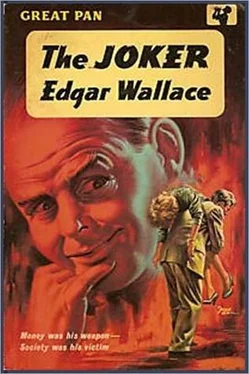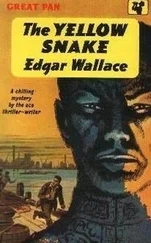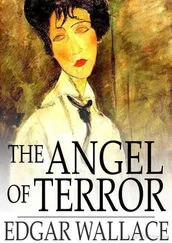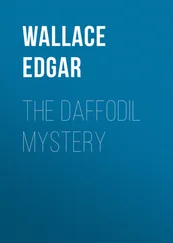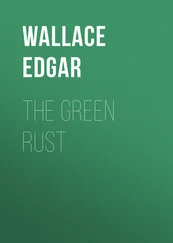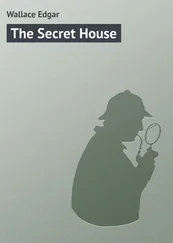Edgar Wallace - The Joker
Здесь есть возможность читать онлайн «Edgar Wallace - The Joker» весь текст электронной книги совершенно бесплатно (целиком полную версию без сокращений). В некоторых случаях можно слушать аудио, скачать через торрент в формате fb2 и присутствует краткое содержание. Год выпуска: 0101, Жанр: Старинная литература, на английском языке. Описание произведения, (предисловие) а так же отзывы посетителей доступны на портале библиотеки ЛибКат.
- Название:The Joker
- Автор:
- Жанр:
- Год:0101
- ISBN:нет данных
- Рейтинг книги:5 / 5. Голосов: 1
-
Избранное:Добавить в избранное
- Отзывы:
-
Ваша оценка:
- 100
- 1
- 2
- 3
- 4
- 5
The Joker: краткое содержание, описание и аннотация
Предлагаем к чтению аннотацию, описание, краткое содержание или предисловие (зависит от того, что написал сам автор книги «The Joker»). Если вы не нашли необходимую информацию о книге — напишите в комментариях, мы постараемся отыскать её.
The Joker — читать онлайн бесплатно полную книгу (весь текст) целиком
Ниже представлен текст книги, разбитый по страницам. Система сохранения места последней прочитанной страницы, позволяет с удобством читать онлайн бесплатно книгу «The Joker», без необходимости каждый раз заново искать на чём Вы остановились. Поставьте закладку, и сможете в любой момент перейти на страницу, на которой закончили чтение.
Интервал:
Закладка:
‘I think,’ said Mr Stratford Harlow, ‘that the effect of the slump has been greatly exaggerated. In many ways, such a panic has ultimately a beneficial result. It finds out all the feeble spots in the structure of finance, breaks down the weak links, so that in tile end the fabric is stronger and more wholesome than it was before the dump occurred.’
‘Is it possible that the slump was engineered by a group of market-riggers?’
‘Mr Harlow scoffed at the idea.
‘How could it have been engineered without the connivance or assistance of the Foreign Secretary, whose speech alone was responsible?’ he asked. ‘It is certainly an amazing statement for a responsible Minister to make. Apparently Sir John was a very sick man when he addressed the House of Commons. It is suggested that he was suffering from overwork, but whatever may have been the cause, he, and he alone, brought about this slump.’
‘You knew Sir John?’
‘Mr Harlow agreed.
‘He was in my house, in this very room, less than a quarter of an hour before the speech was made,’ he said, ‘and I can only say that he appeared in every way normal. If he was ill, he certainly did not show it.’
‘Reverting to the question of world-wide depreciation of stock values, Mr Harlow went on to say…’
Jim read the interview with a wry smile. Harlow had said many things, but he had omitted many more. He did not speak of the feverish activity of Rata, Limited, whose every window had been blazing throughout a week of nights—not one word had he suggested that he himself would benefit to an enormous extent through the tragedy of that unhappy speech.
The man puzzled him. If he was, as Jim was convinced, behind the scare, if his clever brain had devised, and by some mysterious means had brought about the financial panic, what end had he in view? He had been already one of the three richest men in England. He had not the excuse that he had a mammoth industry to benefit. He had no imperial project to bring to fruition. Had he been dreaming of new empires created out of the wilds; were he a great philanthropist who had some gigantic enterprise to advance for the benefit of mankind, this passionate desire for gold might be understood if it could not be excused.
But Harlow had no other objective than the accumulation of money. He had shown a vicarious interest in the public weal when he had presented his model police station to the country; he had certainly subscribed liberally to hospital appeals; but none of these gifts belonged to a system of charity or public spirit. He was a man without social gifts—the joys or suffering of his fellows struck no sympathetic chord in his nature. If he gave, he gave cold-bloodedly, and yet without ostentation.
True, he had offered to build, on the highest point of the Chiltern Hills, an exact replica of the Parthenon as a national war memorial, but the offer had been rejected because of the inaccessibility of the chosen spot. There was a certain freakishness in his projects; and Jim suspected that they were not wholly disinterested. The man baffled him: he could get no thread that would lead him to the soul and the mind behind those cold blue eyes.
For six hours that night he sat by the bedside of the unconscious Foreign Minister. What strange story could he tell, Jim wondered. How came he to be perambulating the streets in the guise of a drunken mountebank, whose wanderings were to end in a vulgar brawl, with a policeman and the cheerless lodgings of a prison cell? Had he some secret weakness which Harlow had learnt and exploited? Did he live a double life? Jim thought only to reject the idea. Sir Joseph’s life was more or less an open book; his movements for years past could be traced day by day from the information supplied by the diaries of his secretary, from the knowledge of his own colleagues.
Whilst Jim kept his vigil he made another attempt to decipher the writing on the card, but he got no farther. He was taking turns with Inspector Wilton of Evory Street in watching beside the bedside. The doctor had said that at any moment the Minister might recover consciousness; and though he took the gravest view of the ultimate result of the drugging, his prognosis did not exclude the chance of a complete recovery. It was at a quarter after three in the morning that the sick man, who had been tossing from side to side, muttering disjointed words which had no meaning to the listener, turned upon his back and, opening his eyes, blinked round the dimly lighted room. Jim, who had been studying the card in the light of a shaded lamp, put it into his pocket and came to the side of the bed.
Sir Joseph looked at him wonderingly, his wide brows knit in an effort of memory.
‘Hullo!’ he said faintly. ‘What happened…? Did the car smash up?’
‘Nothing serious has happened. Sir Joseph,’ said Jim gently.
Again the wondering eyes wandered around the bare walls of the room, and then they fell upon a temperature chart hanging against the wall. ‘This is a hospital, isn’t it?’
‘A nursing home,’ said Jim.
There was a long silence before the sick man spoke. ‘My head aches infernally. Can you give me a drink, or isn’t that allowed?’
Jim poured out a glass of water and, supporting the shoulders of the Minister, put the glass to his lips. He drank the contents greedily and sank back with a sigh upon the pillow.
‘I suppose I am a little light-headed, but I could swear that your name was Carlton,’ he said.
‘That is my name, sir,’ said Jim, and the Minister pondered this for a little time.
‘Anything broken?’ he asked. ‘It was the car, I suppose? I told that stupid chauffeur of mine to be careful. The road was like glass.’
He moved first one leg and then the other gingerly, and then his arms.
‘Nothing is broken at all, Sir Joseph,’ said Jim. ‘You have had a shock.’ He had already rung for the doctor, who was sleeping in a room below.
‘Shock, eh?…I don’t remember…And Harlow!’ His eyebrows lowered again. ‘A decent fellow but rather over-dressed. I went to his house tonight, didn’t I…? Yes, yes, I remember. How long ago was it?’ Jim would not tell him that the visit to Harlow’s had happened days before. ‘Yes, yes, I remember now. Where did I go after that…to the House, I suppose? My mind is like a whirling ball of wool!’
The doctor came in, a dressing-gown over his pyjamas, and the Minister’s mind was sufficiently clear to guess his profession. ‘I’m all in, doctor. What was it, a stroke?’
‘No Sir Joseph,’ said the doctor. He was feeling his patient’s pulse and seemed satisfied.
‘Sir Joseph thinks he might have been in a car collision,’ suggested Jim with a significant glance at the doctor.
The man was terribly weak, but the brightness of his intellect was undimmed. ‘What is the matter with me?’ he asked irritably as the medical man put the stethoscope to his heart.
‘I’m wondering whether you have ever taken drugs in your life?’
‘Drugs!’ snorted the old man. ‘Good God! What a question! I don’t even take medicine! When I feel ill I go to my osteopath and he puts me right.’
The doctor grinned, as all properly constituted doctors grin when an osteopath is mentioned, for the medical profession is the most conservative and the most suspicious of any.
‘Then I shan’t give you drugs.’ He had a nimble turn of mind to cover up an awkward question. ‘Your heart is good and your pulse is good. And all you want now is a little sleep.’
‘And a little food,’ growled Sir Joseph. ‘I am as hungry as a starved weasel!’
They brought him some chicken broth, hot and strong, and in half an hour he had fallen into a gentle sleep. The doctor beckoned Jim outside the room.
Читать дальшеИнтервал:
Закладка:
Похожие книги на «The Joker»
Представляем Вашему вниманию похожие книги на «The Joker» списком для выбора. Мы отобрали схожую по названию и смыслу литературу в надежде предоставить читателям больше вариантов отыскать новые, интересные, ещё непрочитанные произведения.
Обсуждение, отзывы о книге «The Joker» и просто собственные мнения читателей. Оставьте ваши комментарии, напишите, что Вы думаете о произведении, его смысле или главных героях. Укажите что конкретно понравилось, а что нет, и почему Вы так считаете.
